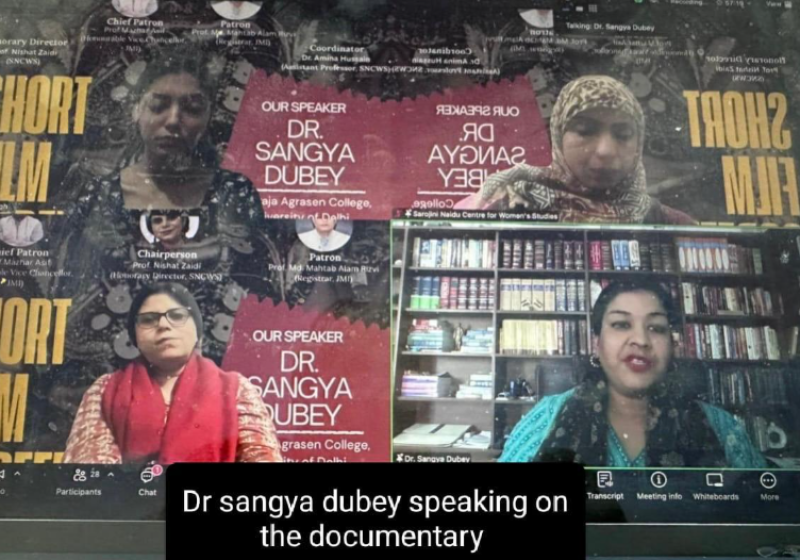The Sarojini Naidu Centre for Women’s Studies (SNCWS), Jamia Millia Islamia, organised a special online screening and discussion of the short film Halma on the occasion of Janjatiya Gaurav Divas, November 14, 2025. The film offered an engaging and thoughtful portrayal of the Bhil community’s collective tradition of coming together to address shared concerns, particularly issues related to water scarcity. Through compelling visuals and narratives, Halma showcased how traditional methods foster unity, collective responsibility, and a deep sense of community belonging.
The film further highlighted the continued relevance of indigenous practices in the modern world. It underscored the importance of traditional approaches not only in community coordination but also in everyday life, including food practices and sustainable living. As contemporary society rapidly moves toward modernisation, the documentary served as a reminder of the value embedded in age-old customs that sustain both ecological balance and cultural identity.
Following the screening, Dr. Sangya Dubey from Maharaja Agrasen College, University of Delhi, led an enriching discussion on the cultural and social significance of tribal practices. She emphasised the importance of traditional food systems, community-led methods, and the wisdom inherent in indigenous ways of living. Dr. Dubey’s reflections deepened the audience’s understanding of the film and encouraged further thought on how tribal knowledge systems remain relevant in addressing current social and environmental challenges.
Warm appreciation was extended to the guidance and support of Prof. Nishat Zaidi, Director of the Sarojini Naidu Centre for Women’s Studies, whose leadership continues to foster meaningful academic engagements. Appreciation was also extended to Dr. Amina Hussain, Coordinator of the programme, for her efforts in organising the event and ensuring its smooth execution.
The programme witnessed active participation from students, scholars, and faculty members, who contributed to an engaging discussion on indigenous heritage and the importance of preserving traditional practices. The event concluded with thanks to the student volunteers and administrative staff of SNCWS for their support and coordination.
The screening of Halma successfully drew attention to the richness of tribal traditions and reaffirmed the need to value and preserve these practices, which continue to offer vital lessons in sustainability, cooperation, and community harmony.


